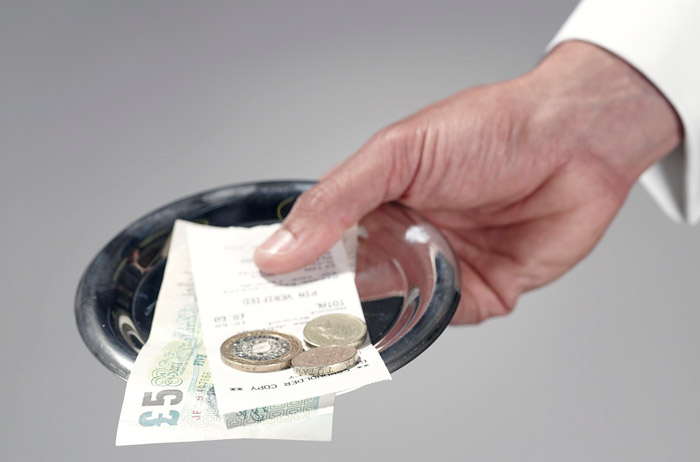When I worked in the food industry during high school, I hoped the only heat I felt would come from the grill.Yet cooks and customers pressured me to perform perfectly and even worse, be a perfect person. It wasn’t the heat or pressures of the hard work itself that pushed me too far, but the man who followed me to my car after work one day.
While the restaurant industry is a known hub for sexism against women—90 per cent of women in food industry have reported being harassed—it was the customers’ control over me that made me wish I had never become a waitress. What I didn’t anticipate was that I had made myself a victim of the intrinsic flaw of tip-based incomes—the customer is always right.
A sense of entitlement comes from signing a person’s tip, and when more than 60 per cent of those vying for high rewards are women, it becomes commonplace to ignore lewd remarks in order to receive large tips.
This economically-motivated degradation rewarded this behavior on the basis that a woman is there to please. I found myself surrounded by men who would make aggressive comments to which I could only respond with a tight smile. Management would require a white-shirt-black-pants uniform, and on the odd days where I chose to wear yoga pants, I could feel eyes burning holes into my backside, felt hands brush up against me, and heard threats disguised as compliments. But for risk of losing a payday, I was forced to bite my tongue.
This system allows customers to be rude and unreasonably demanding. It’s not only demeaning—it’s a violation of basic human rights.
Being a waitress means being in a situation where defending yourself could mean not having a stable source of income. The state of New Jersey allows employers to pay workers as low as federal tipped minimum wage—$2.13/hr—a wage that hasn’t been adjusted in 22 years. This system operates under the assumption that after tips, workers are making just as much as their non-tipped counterparts in the workforce.
However, seasonal and customer fluctuations strip any sort of reliability from having tips as a primary income source. While the idea of living on minimum wage alone has been continuously deemed as laughable, the idea of a living on tipped-minimum wage seems impossible.
A system where tips—for all service staff—are determined by customers who can chose not to pay for services without reason, is a system that needs to be changed.
The food industry is notorious for cutting corners to maximize profit. By paying their employees minimum amounts or by hiring undocumented immigrants—36 per cent of restaurant workers are illegal according to a government survey—restaurateurs are getting away with compromising the safety, sanity, and integrity of their female employees to save cents.
When the catcalls, inappropriate gestures, comments, and actions from my coworkers, managers, and customers finally pushed me to address the restaurant owner about the actions that could be done to stop it—nothing happened.
“Boys will be boys,” he said. “It’s the culture.”
I was sure he had misheard me. Certainly, if I was feeling abused and unsafe, to the point where leaving work after dark made me uncomfortable, something would be changed.
But he elaborated—no matter what he could say to his current customers and no matter who he replaced his other employees with, there would be no change. Here lies the problem—change is obviously very necessary. I want to be able to wear what I want to work and not feel like I’m making myself a target for aggressors. I think it’s fair to ask for a safe environment where I’m respected for my integrity and effort in the workplace. I am serving food—I myself am not food.
Until this idea is set into the minds of men who are both employees and customers in the food industry, my boss will be right—there will be no change.









